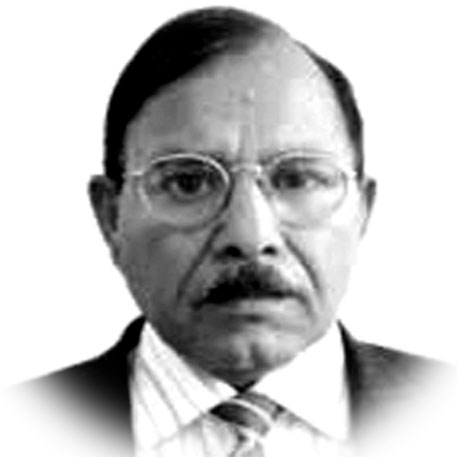Malik M Ashraf
IT is a shameful reality that money has invariably changed hands to buy loyalties of the legislators in the Senate polls.
In fact money has been playing significant role even in the elections for provincial and national assemblies.
A person contesting for provincial or national assembly seat has to spend between 60-70 million rupees making it impossible for people belonging to middle class to run the race even if they are competent enough to be part of the legislatures.
It has been an undertaking by the elite class to the exclusion of the people belonging to other strata of the society which has perpetuated the culture of graft and entitlement.
It is a pity that in spite of these known facts no serious effort has been made by any political party to change the way we elect our representatives for the legislatures.
True democracy is about inclusivity, accountability and transparency. The way forward is to reform the electoral system in a way which ensures the existence of these attributes.
This undoubtedly requires cooperation between all the political forces to arrive at a consensus for making the required amendments in the Constitution.
Unfortunately the possibility of all the political parties coming together for this purpose at the moment seems very remote due to permeating ambience of political confrontation.
However the culture of horse-trading and buying loyalties must change. It cannot wait for long now if the country has to embark on the path of true democracy and a transition that represents a complete break from the unenviable past.
A beginning has to be made somewhere to unleash the centrifugal force to break this vicious circle. In this context the move by the PTI government to make a beginning by ensuring transparency in the ensuing Senate election through open ballot is surely a first step towards that goal.
But unfortunately the effort by the government to make amendment in the Constitution to get that process rolling was thwarted by the opposition parties in Parliament notwithstanding the fact that the PML(N) and PPP, the major opposition parties in their Charter of Democracy (C0D) had pledged to ensure transparency in the Senate election by removing the provision for secret ballot.
They never actually took any initiative in that regard during their stints of power from 2008-2018.
The government had no choice but to issue an Ordinance to achieve the objective of transparency in the Senate election.
However, it did the wise thing to make a reference to the apex court for its opinion on the issue and also conditioned the implementation of the Ordinance to the advice of the court.
While the court is still deliberating on the issue it is hard to predict the outcome of the Presidential Reference.
However the court during hearing did lament the fact that the PPP and PML (N) had gone back on their agreement in the COD to hold the Senate elections through open ballot.
It also remarked that the strength of any party in the provincial assemblies must be reflected in the Upper House and if the said reflection of proportional representation does not mirror in the Senate the ECP would be responsible for that breach of strength.
The foregoing observations do indicate the fact that even the SC agrees in principle to the need for transparency in the Senate elections and discouraging horse-trading.
The position taken by the opposition parties on the issue actually stems from their narrow political considerations and a traditional resistance to change by the vested interests rather than the long-term view of serving the national interests and the cause of strengthening democracy.
Needless to emphasize that there is a national consensus on the need for reforms in the system of governance and the way we elect our representatives.
But unfortunately this consensus and the imperative need for reforms is consigned to controversy due to narrow political agendas of the political parties.
This kind of attitude is the main stumbling block in the way of the required and perceived reforms.
It is really ironical that the parties that are opposing this move had protested against the dismantling of the government in Balochistan, the PPP securing two seats in KPK with only three legislators in the assembly and the defeat of the vote of no-confidence against Chairman Senate.
The question arises as to why they are striving hard to thwart the move by the government to ensure transparency in the balloting for Senate seats? Logic fails to explain their behaviour.
In the permeating situation, however, one tends to infer that the resistance of the political parties to this change was either designed to destabilize the government and put pressure on it to abandon the process of accountability or to protect their vested interests through continuation of the status quo which serves their political ends.
I think it is a good opportunity for the opposition parties to assert their democratic credentials and the belief in transparency so vociferously being announced from every convenient roof-top.
The system must and has to change to block the way of corrupt and moneyed people to enter the legislatures to perpetuate the archaic system of graft and entitlement and induction of rulers having myriad of skeletons their cupboards.
The country has suffered enormously due to the bad governance reinforced through corrupt practices. If the country has to move on its cherished path as envisioned by the founder of the nation, we must take a detour from the treacherous course we have been treading so far. There is no other option available.
— The writer is former Director General Ministry of Information and Broadcasting, based in Islamabad.










